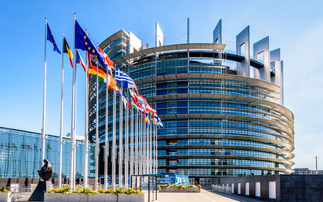With three weeks to go before COP21, ministers gather in Paris to thrash out differences over global climate deal
Businesses are being urged to become carbon pricing "champions" by factoring greenhouse gas emissions into the costs of their investment decisions, ahead of the Paris climate change summit that starts in three weeks' time.
The initiative, led by the World Bank Group and United Nations, seeks to galvanise a growing movement towards setting a global carbon price that would ensure the most polluting companies pay for their impact on the environment.
Nearly 50 companies, including BT Group, Unilever, Nestle and EDF, have already signed up as official carbon pricing champions and have agreed publicly promote carbon pricing initiatives and report on their progress in setting their own internal carbon prices.
The new signatories are likely to be formally announced during the Caring for Climate Business Forum, taking place on 7 and 8 December, on the sidelines of the COP21 Paris climate change summit. The event will be opened by UN Secretary-General Ban Ki-moon, COP21 President and France's Minister of Foreign Affairs and International Development Laurent Fabius, and the UN's top climate change official Christiana Figueres, and will feature sessions on corporate carbon pricing, science-based target setting, adaptation and financing.
The second day of the forum will present an overview of all commitments and contributions made by businesses and investors towards supporting the goals of COP21, before closing with a focused discussion on carbon pricing.
Growing numbers of businesses have introduced management processes that set an internal price on carbon, in a move designed to make executives account for the climate impact of the decisions they take. Advocates of carbon pricing hope the voluntary approach will increase pressure on governments to adopt more ambitious carbon pricing policies.
The news comes as ministers from nearly 70 countries are meeting in Paris today for a "pre-COP" meeting, to help prepare the way for the final round of negotiations at the summit proper.
This week's three-day event is focusing on four key themes: ambitions, equity, actions that countries will take to reduce emissions before 2020, and climate finance. It is hoped that the gathering of all the key players at the talks will help ease some of the deadlocks that marred the final round of official UN negotiations in Bonn last month.
The last round of technical talks in Bonn, saw many of the old fault lines in the talks emerge, with developed and developing nations split over key issues such as which countries should bear the brunt of emissions reductions and how poor countries should be paid for coping with the worst impacts of climate change.
Squabbling between rich and poor countries resulted in the official negotiating text expanding significantly to 63 pages, up from the 20 that the co-chairs had originally proposed. During the course of the five days, countries demanded a wide range of options were reinserted into the draft text, with the G77 group and China raising particular concerns over the key issues of loss and damage and climate finance.
However, the UN remains optimistic an ambitious climate treaty can yet be delivered and the lst few days has seen some of the final details confirmed ahead of the high profile summit. On Saturday, the United Nations released the official agenda for COP21, alongside a new negotiating text and guidelines on how the text could be improved.
Meanwhile, yesterday France's Foreign Minister Laurent Fabius confirmed Russia's Vladimir Putin will be attending the first day of talks on 30 November and on Friday, US President Barack Obama also confirmed he would attend the COP.
This week's latest round of climate change negotiations will culminate in a G20 meeting in Turkey, where ministers will be urged to set out their goals for Paris, while also discussing a range of controversial environmental issues such as fossil fuel subsidies, climate finance and export credits for coal.
Last month, Bank of England Governer Mark Carney called on the G20 to tackle the financial risks of climate change, revealing that he expects the G20 meeting in Turkey to call on the world's leading developed and developing countries to bring in tougher corporate disclosure standards so that investors could better judge climate change risks.
"One idea is to establish an industry-led group, a Climate Disclosure Task Force, to design and deliver a voluntary standard for disclosure by those companies that produce or emit carbon," he revealed. "Companies would disclose not only what they are emitting today, but how they plan their transition to the net-zero world of the future. The G20 - whose member states account for around 85 per cent of global emissions - has a unique ability to make this possible."
With three weeks to go until the start of the talks there is a huge amount still to be resolved, but observers are more optimistic than ever that the basis for an ambitious new agreement is there to be finalised.
This article is part of BusinessGreen's Road to Paris Hub, hosted in association with PwC










